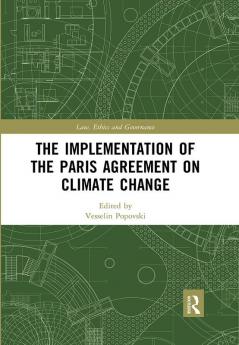English
Paperback
₹3619
₹5332
32.13% OFF
(All inclusive*)
Delivery Options
Please enter pincode to check delivery time.
*COD & Shipping Charges may apply on certain items.
Review final details at checkout.
Looking to place a bulk order? SUBMIT DETAILS
About The Book
Description
Author
Shoutouts
<p>In December 2015 196 parties to the United Nations Framework Convention on Climate Change (UNFCCC) adopted the Paris Agreement seen as a decisive landmark for global action to stop human- induced climate change. The Paris Agreement will replace the 1997 Kyoto Protocol which expires in 2020 and it creates legally binding obligations on the parties based on their own bottom-up voluntary commitments to implement Nationally Determined Contributions (NDCs). The codification of the climate change regime has advanced well but the implementation of it remains uncertain.</p><p>This book focuses on the implementation prospects of the Agreement which is a challenge for all and will require a fully comprehensive burden- sharing framework. Parties need to meet their own NDCs but also to finance and transfer technology to others who do not have enough. How equity- based and facilitative the process will be is of crucial importance. The volume examines a broad range of issues including the lessons that can be learnt from the implementation of previous environmental legal regimes climate policies at national and sub-national levels and whether the implementation mechanisms in the Paris Agreement are likely to be sufficient.</p><p>Written by leading experts and practitioners the book diagnoses the gaps and lays the ground for future exploration of implementation options. This collection will be of interest to policy-makers academics practitioners students and researchers focusing on climate change governance.</p>
Delivery Options
Please enter pincode to check delivery time.
*COD & Shipping Charges may apply on certain items.
Review final details at checkout.
Details
ISBN 13
9780367481483
Publication Date
-14-01-2020
Pages
-340
Weight
-484 grams
Dimensions
-156x234x18.07 mm

























